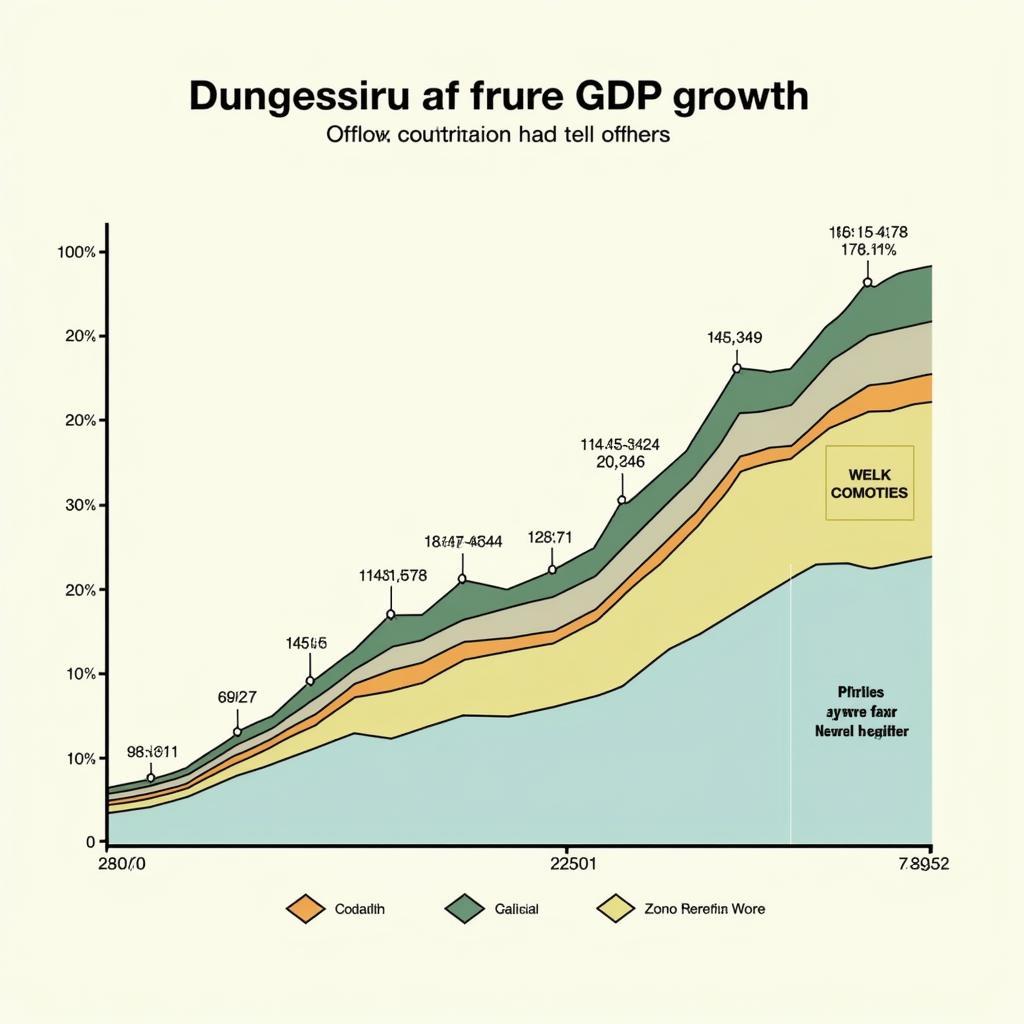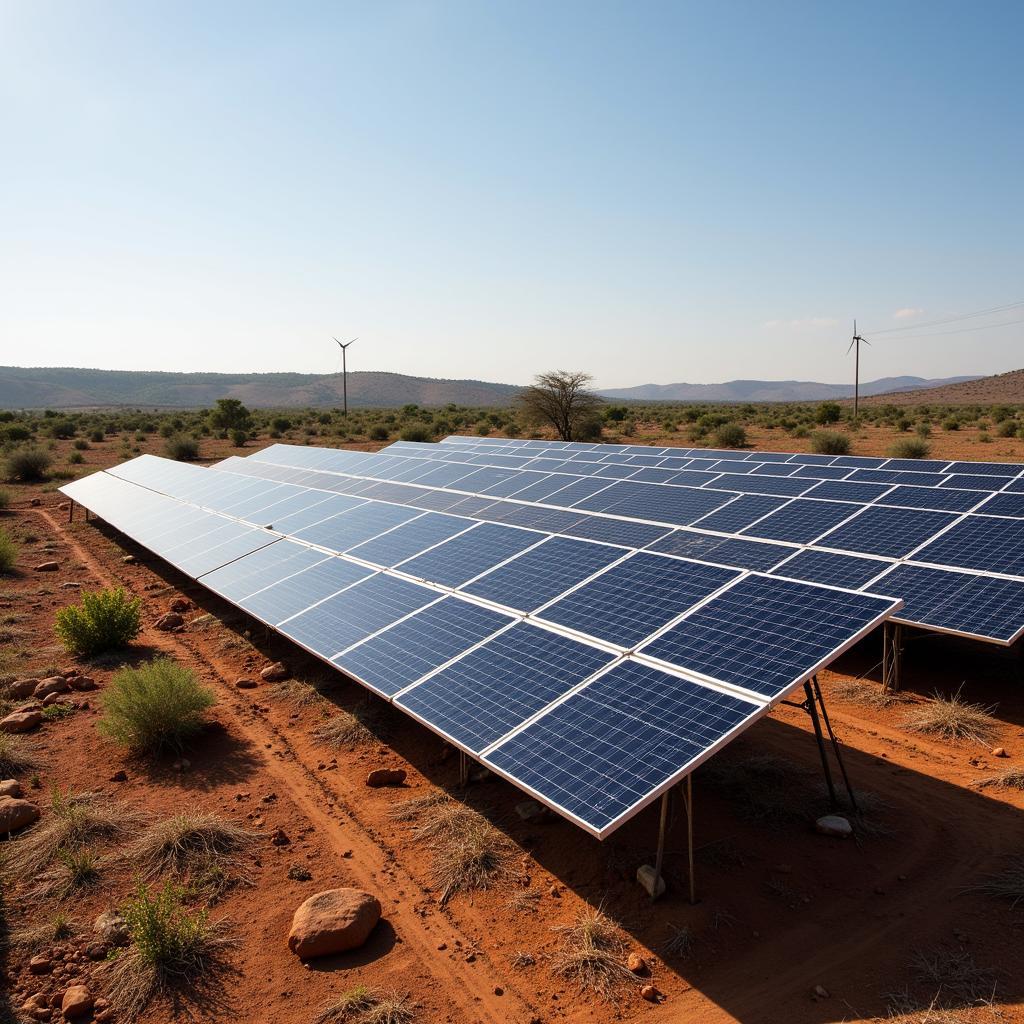African Countries Growth Rate: An In-Depth Look at Economic Progress
The African continent has long been plagued by narratives of poverty and underdevelopment. However, the narrative surrounding African Countries Growth Rate is rapidly changing. While challenges remain, many nations across the continent are experiencing remarkable economic growth, driven by factors like increased investment, burgeoning industries, and a young, dynamic population. This article delves into the factors contributing to this growth, highlights some of the fastest-growing economies, and explores the potential for continued progress in the years to come.
 African Economic Growth Chart
African Economic Growth Chart
Factors Fueling the Growth of African Economies
Several key factors contribute to the positive trajectory of African countries growth rate:
- Foreign Direct Investment (FDI): African nations are attracting significant FDI, particularly in sectors like infrastructure, technology, and natural resources. This influx of capital fuels economic activity and creates jobs.
- A Burgeoning Young Population: Africa boasts the world’s youngest population, presenting a significant demographic dividend. This young workforce is increasingly educated and skilled, driving innovation and entrepreneurship.
- Urbanization: As more Africans migrate to urban centers, it creates larger consumer markets and opportunities for businesses to thrive. This urbanization trend is also leading to the development of new infrastructure and services.
- Technological Advancement: The rapid adoption of technology, particularly in mobile banking and digital services, is transforming African economies. This tech revolution is improving financial inclusion, facilitating trade, and creating new opportunities across various sectors.
- Natural Resources: Many African countries are endowed with vast natural resources, including oil, minerals, and arable land. The sustainable development and management of these resources can be a significant driver of economic growth.
Spotlight on High-Growth African Countries
Several countries stand out for their impressive economic performance in recent years. These include:
- Rwanda: With a focus on good governance, investment in human capital, and technological innovation, Rwanda has consistently achieved high growth rates.
- Ethiopia: Ethiopia has implemented ambitious economic reforms and attracted substantial foreign investment, particularly in manufacturing and infrastructure.
- Côte d’Ivoire: Political stability and economic diversification have contributed to strong growth in Côte d’Ivoire, with sectors like agriculture and services experiencing significant expansion.
- Ghana: Ghana’s stable democracy, favorable business environment, and investments in education and infrastructure have fostered sustained economic growth.
- Senegal: With a focus on structural reforms, regional integration, and infrastructure development, Senegal is emerging as a major economic player in West Africa.
The African Continental Free Trade Area: Unlocking Growth Potential
The launch of the African Continental Free Trade Area (AfCFTA) in 2021 marks a significant milestone in the continent’s economic trajectory. By creating a single market for goods and services, AfCFTA aims to boost intra-African trade, attract investment, and promote industrialization. The agreement has the potential to unlock immense economic opportunities, creating jobs, increasing competitiveness, and boosting African countries growth rate significantly.
Challenges and Opportunities on the Path to Sustainable Growth
While the future looks bright for many African economies, challenges remain. These include:
- Infrastructure Deficits: Inadequate infrastructure, including roads, energy, and telecommunications, continues to hinder growth in some regions.
- Political Instability and Conflict: Political instability and conflict in certain countries can disrupt economic activity and deter investment.
- Climate Change: The impacts of climate change, such as droughts and floods, threaten agricultural productivity and overall economic stability.
Addressing these challenges is crucial to ensuring sustainable and inclusive growth across the continent. Investing in education, healthcare, and infrastructure, promoting good governance, and fostering regional integration are essential steps towards achieving this goal.
 Renewable Energy Projects in Africa
Renewable Energy Projects in Africa
Conclusion: A Continent on the Rise
The narrative surrounding African countries growth rate is one of optimism and transformation. Despite the challenges, the continent is witnessing remarkable economic progress, driven by a young population, technological advancements, and increasing investment. While challenges remain on the path to sustainable and inclusive growth, the future of Africa’s economies appears bright. By continuing to invest in its people, embrace innovation, and promote good governance, Africa is well-positioned to become a major engine of global economic growth in the 21st century.

